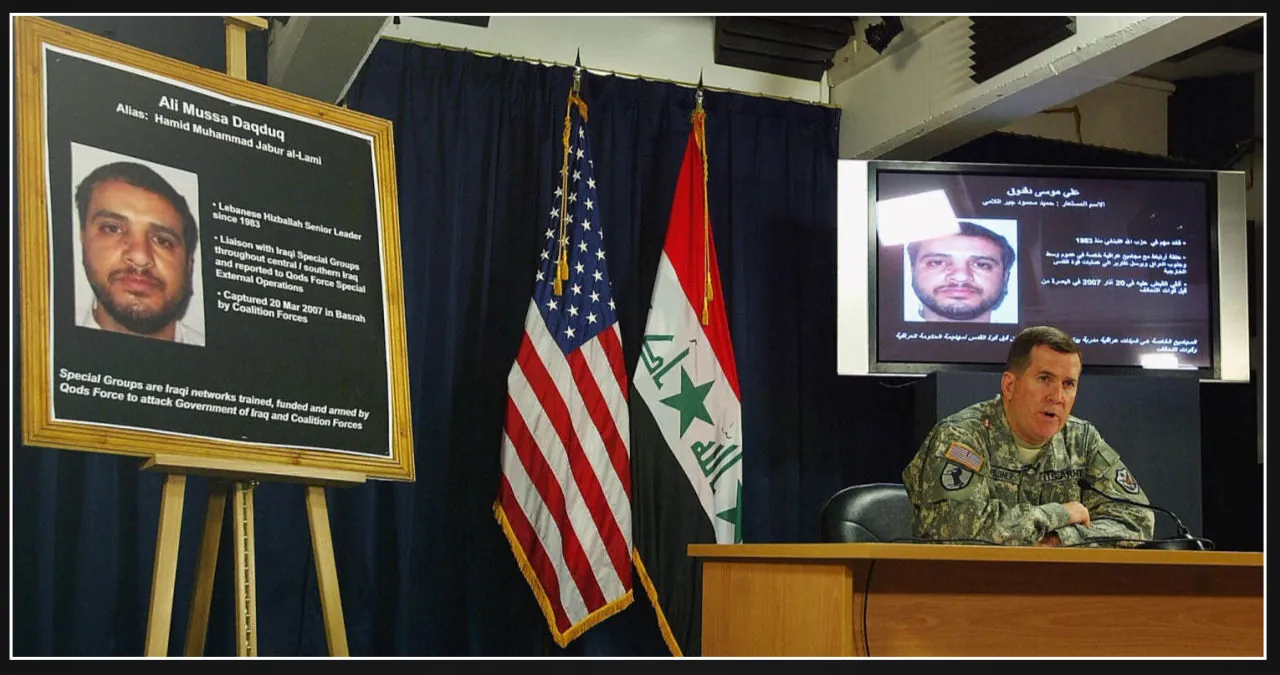According to a senior U.S. defense official, a senior Hezbollah commander, who played a key role in planning one of the most audacious and well-executed attacks against American troops during the Iraq War, was killed in a recent Israeli airstrike in Syria.
Ali Mussa Daqduq was captured by U.S. forces after the 2007 raid, during which militants disguised as an American security team took the lives of five U.S. soldiers. However, the Iraqi government later released him.
The Israeli airstrike details were not widely available. The exact timing of the strike, its location within Syria, and whether it specifically targeted Daqduq remain unclear, according to a senior defense official.
The Pentagon spokesperson did not respond immediately when asked for a comment. The Israeli embassy referred the questions to its military, but they also did not respond right away.
On January 20, 2007, Daqduq played a significant role in planning a meticulously executed raid. This operation took place at a military complex in Karbala, where both U.S. and Iraqi troops were stationed. A group of individuals, disguised as an American military security team, went to great lengths to appear authentic. They donned U.S. military combat fatigues, carried U.S. weapons, and even spoke English. Their ruse was so convincing that they managed to bypass multiple checkpoints and gain access to the building where the troops were operating.
The compound was one of the Joint Security Stations in Iraq, where American soldiers resided and collaborated with the Iraqi police and soldiers. When the militants arrived, the Provisional Joint Coordination Center (PJCC) was occupied by over two dozen U.S. soldiers, including some who were living in the barracks room.
U.S. attack helicopters pursued the convoy, causing the militants to abandon their vehicles and flee on foot. Tragically, they took the lives of the four U.S. captives during their desperate escape.
Four soldiers who were shot by their captors have been identified as 1st Lt. Jacob Noel Fritz, 25; Capt. Brian Scott Freeman, 31; Pfc. Shawn Patrick Falter, 25; and Spc. Johnathan Bryan Chism, 22. Additionally, Pfc. Johnathon Miles Millican, 22, was killed by a grenade at the compound.
U.S. officials believed that the militants had received direct support from Iran following the attack. They came to this conclusion because of the high level of coordination, training, and intelligence that would have been necessary to carry out such an operation.
In March 2007, U.S. forces successfully apprehended Daqduq, leading to a significant breakthrough. It was revealed that Iran’s Quds Force, a distinguished unit within the Revolutionary Guard, played a role in orchestrating the Karbala raid. During interrogation, Daqduq confessed that the operation had been executed with direct assistance and training from the Quds Force.
Daqduq spent several years under the custody of the U.S. military in Iraq before being transferred to Iraqi authorities in December 2011. He was the final prisoner to be handed over before the U.S. troops withdrew from the country.
The Iraqis gave their assurance to U.S. officials that they would take legal action against Daqduq. However, much to the dismay of American officials and politicians, he was released within a few months. This decision caused outrage, especially considering that Daqduq resumed his role as a leader of Hezbollah fighters shortly after his release, according to a senior U.S. defense official.

